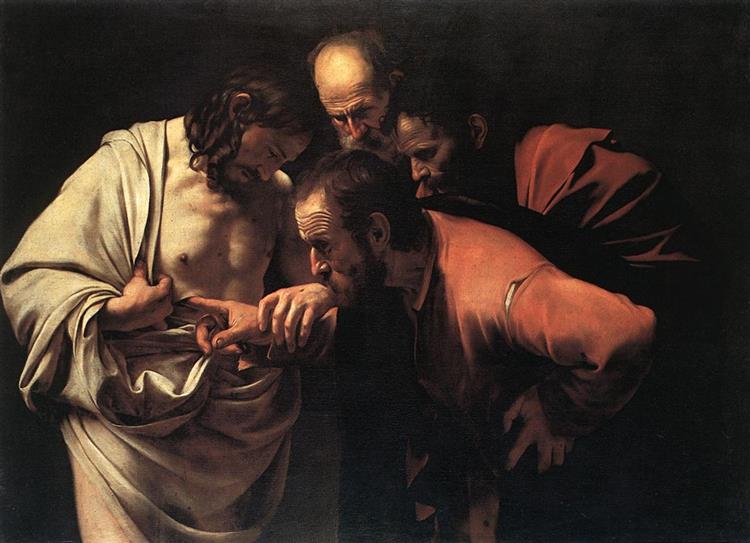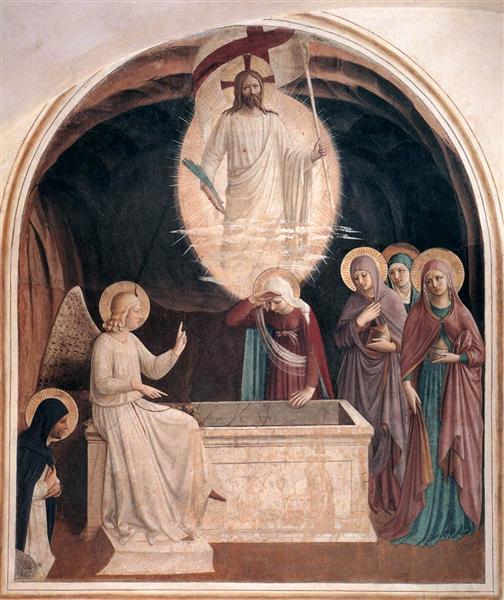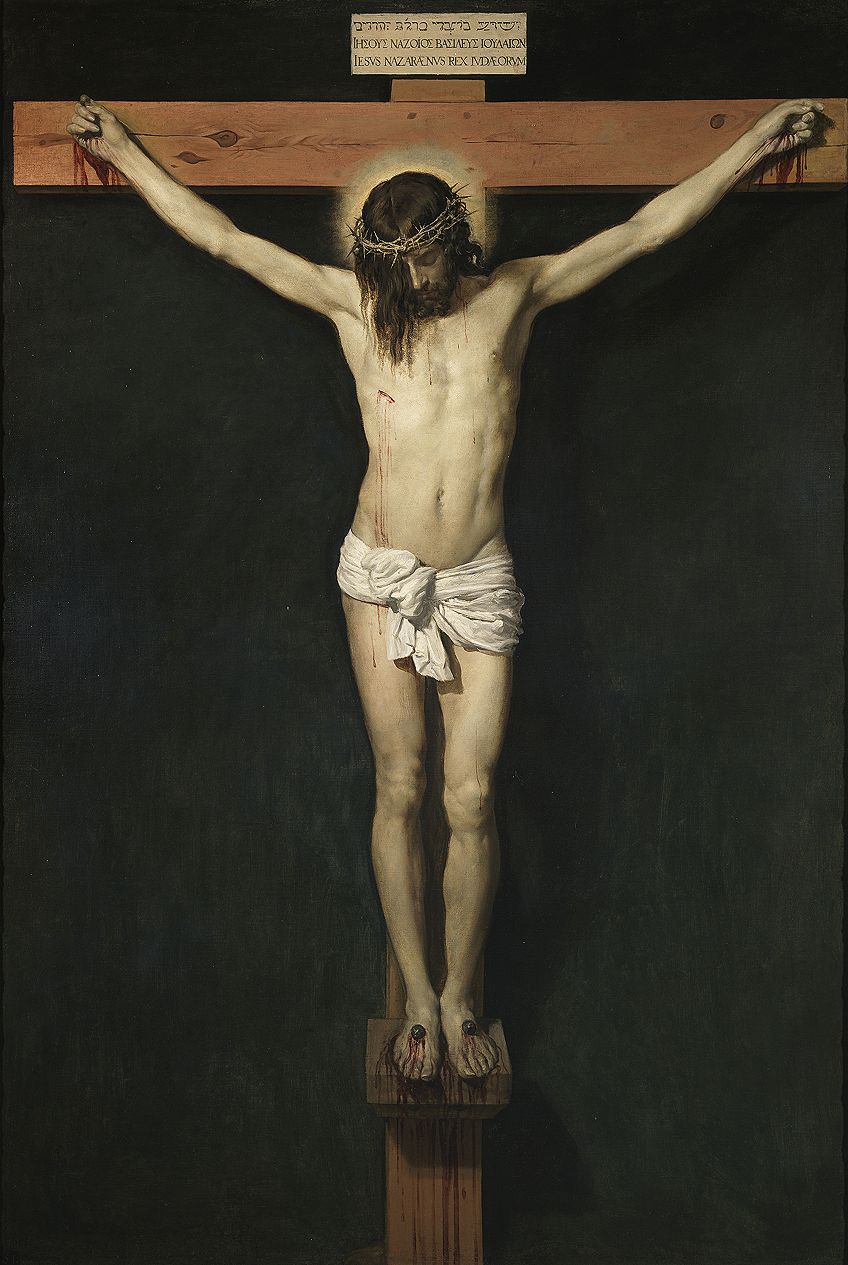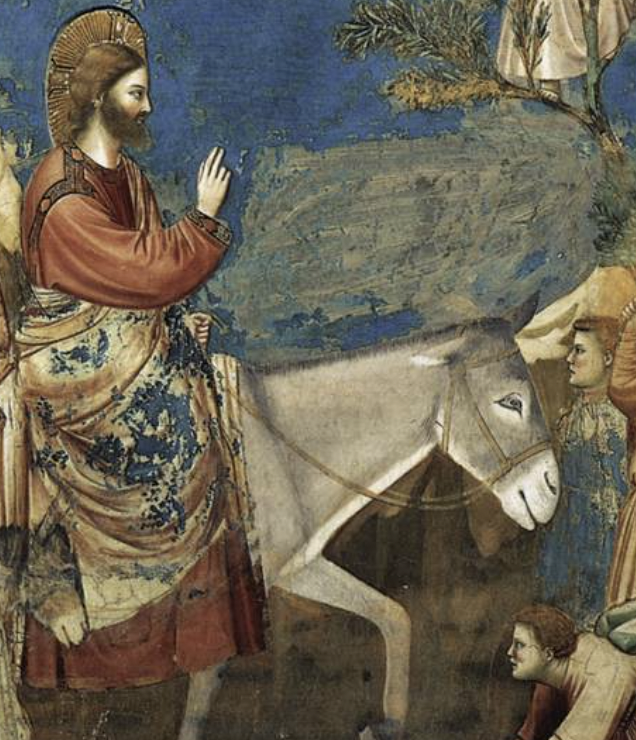John 20:19-31
Pastor James Preus
Trinity Lutheran Church
April 24, 2022
Twice in this Gospel lesson St. John points out that the doors were locked, yet Jesus came and stood among them. How did Jesus do this? Was it just a spirit that looked like Jesus? No. Jesus showed them his hands and his side still bearing the marks of the nails and spear. St. Luke reports that Jesus ate food with them. Spirits do not have scars. Spirits do not eat. Spirits do not have bodies you can touch and feel. So, how does Jesus do this? Jesus is God. He can do whatever he wants. Nothing is impossible with him. And Jesus’ human body does not limit his divine power. The Son of God did not become weak when he became flesh. Yes, he hid his divine glory for a while, as he was swaddled in a manger, as he hungered in the wilderness, as he languished on the cross. But Jesus never ceased to be God. Yet now, after his resurrection, his glory is no longer hidden. Jesus’ body is not limited to space and time the way our bodies are limited, because Jesus is true God. This is also how he was able to exit the tomb with his body without removing the stone. And this is how Jesus is able to be present in the Sacrament of the Altar with his body and blood, even though this seems impossible to us. Jesus is able to do far more than we can either ask or think (Ephesians 3:20).
Why then the scars? Scripture tells us that Jesus’ body is raised in glory. All things are placed under his feat. And all who believe in him will be raised to new life with bodies formed after the image of this risen Christ. Why then the scars? If in Jesus’ resurrection his body is changed so that it has no imperfections or weaknesses, so that it is even able to be in more than one place at one time and enter into closed and locked rooms without opening a door, why do Jesus’ scars remain? Why does his body still bear the marks of the nails in his hands and the mark of the spear in his side, if he has been raised to incorruptibility? For two reasons: 1. To show them that he is the same Jesus whom they saw crucified and 2. To show them what they must preach in order to save sinners.
This risen and glorified Jesus is the same Jesus, who covered in blood, bore the sins of the whole world on the cross, died, and was laid dead in a tomb. He is now risen. Our sins are forever banished. Jesus has conquered death. He shows them the nail marks in his hands and the scar of the spear in his side to prove that he is the same Jesus who suffered for the sins of the world, and he has won. The man who suffered and died for the sins of the world is the same God, who is exalted above all things. Those scars prove that he has won our salvation for us.
Jesus bears the scars to show his disciples what they must preach. It is in this setting that Christ institutes the Office of Preaching the Gospel, so it is in this setting that he shows his ministers his hands. It is as if Jesus is saying, “You must preach the way to eternal life, but that way is not accomplished by works done with your hands. Rather, look at my hands. My hands have done the work needed to be done. See their scars!” And indeed, Jesus has accomplished the work needed to be done to save our souls. That is the content of the Gospel. Preachers of the Gospel do not point sinners to their own hands in order for them to work their own way to heaven. Preachers of the Gospel point sinners to Jesus’ hands, so that they may see who has worked for them and earned their way to eternal life.
This Gospel lesson gives us the best proof text for the Office of the Keys. What is the Office of the Keys? Our Catechism answers, “The Office of the Keys in that special authority, which Christ has given to His Church on earth to forgive the sins of repentant sinners, but to withhold forgiveness from the unrepentant, as long as they do not repent.” It then quotes John 20:22-23: The Lord Jesus breathed on his disciples and said, “Receive the Holy Spirit. If you forgive the sins of any, they are forgiven them; if you withhold forgiveness from any, it is withheld.”
This is why our church teaches that when the called ministers of Christ deal with us by Christ’s divine command, in particular when they exclude openly unrepentant sinners from the Christian congregation, and absolve those who repent of their sins and want to do better, this is just as valid and certain even in heaven as if Christ our dear Lord dealt with us himself. We believe that when a minister forgives sins, what is called the absolution, that Christ himself is forgiving those sins in heaven. We also believe that when a minister withholds forgiveness, that forgiveness is withheld by Christ himself. The Church is supposed to withhold forgiveness from sinners, who openly refuse to repent of their sins, because they show that they do not have true faith in Christ. You cannot have saving faith while continuing in sin without repenting. Christ commands that His Church withhold forgiveness from unrepentant sinners, so that they learn to repent, so that they may be saved through faith. Yet, Christ commands his Church to forgive the sins of repentant sinners, so that they may know that their sins are forgiven before God in heaven and may be saved through faith.
The Office of the Keys deals directly with confession and absolution as well as excommunication, which is the practice of removing openly unrepentant sinners from the Christian congregation until they repent. Yet, the Office of the Keys really teaches the entire ministry of the Church. Christ has given his Church the authority to forgive sins. The forgiveness of sins is given through the proclamation of the Gospel, that is, through words. Jesus said to his disciples, “The one who hears you hears me. The one who rejects you rejects me.” (Luke 10:16) This is because Jesus has accomplished all that needs to be done for our salvation. He died for our sins. He rose for our justification. We are saved through faith alone. Jesus told Thomas, “Blessed are those who have not seen, yet have believed.” Yet, how are they to believe? John tells us in this very chapter, “These are written that you may believe that Jesus is the Christ, the Son of God, and that believing you may have life in his name.” (John 20:31)
Jesus won for us salvation through his bitter suffering and death for our sins and his glorious resurrection. We receive this salvation as a free gift through faith. Yet, there can be no faith without hearing the words of the Gospel. Many people think that they can come to true faith or keep the faith without the word of the Gospel, but it is impossible. Jesus designed for us to receive saving faith through his Word. That is why he gave his Church the Office of the Keys, so that through words spoken by the minister, sinners may believe that they have a gracious and forgiving God. This is why Jesus instituted the Office of Preaching the Gospel, so that sinners may believe the Gospel and be saved.
God planned our salvation; we did not. Jesus, our God and Lord, who became our brother by taking on human nature, died for the sins of the whole world. He is risen from the dead, having made satisfaction for all our sins. God’s plan is for us to receive this salvation as gift through faith, that is, by believing and trusting in the promise that our sins are forgiven for Christ’s sake. God’s plan is that we receive this faith through the proclamation of the Gospel. Jesus showed his disciples his hands and his side, demonstrating that only through the preaching of the cross can sinners be saved. We will not find another way to salvation. There is no other message that can create faith or keep faith alive. Do not be fooled into thinking that you can strengthen your faith in Christ by meditating on your own sinful thoughts or by getting in touch with nature or your garden, or that you can become closer to God by the work of your own hands. No. You can only come to true saving faith by hearing the Gospel of what Jesus’ nail-pierced hands have done for you.
Faith is a gift from God. Because of our sinful reason, no one can believe in Christ unless the Father grants him faith by the Holy Spirit. Thomas proved this by denying the testimony of over a dozen eye witnesses of Jesus’ resurrection, after he himself heard Jesus predict his resurrection, the same Jesus, whom he had witnessed raising the dead. After Thomas confessed the true saving faith, declaring Jesus his God and Lord, Jesus said, “Blessed are those who have not seen, yet have believed.” Those blessed are those whom God has granted faith as a gift. This faith is given through the Gospel message alone.
We speak of the fruits of faith coming after faith, yet they really often happen instantaneously with faith. When the doubting disciples came to faith, having seen the risen Lord, they received two fruits of faith: Peace and Joy. Immediately Jesus declared to them, “Peace be with you.” Having been justified through faith, they had peace with God. And having seen the risen Lord, they had joy.
This is peace, which the world cannot give, which surpasses all understanding. Notice that the threat against the disciples, which compelled them to lock their doors, is still there. In fact, nearly all of them will eventually be killed at the hands of Jesus’ enemies. Yet still, they have peace. God is not angry with them. He has forgiven them and looks favorably at them. And this means that they have peace with their fellow Christians. The Office of the Keys doesn’t give authority to forgive sins to the pastor alone, but to every Christian. Through faith in the Gospel, Christians have peace with one another by forgiving one another their sins.
This peace can only be found in the nail marked hands and the spear scared side of Jesus’ Christ. This is why the pastor says, “The Peace of the Lord be with you always,” as he holds up to the congregation the bread and wine, which is the true risen body and blood of our Lord Jesus Christ. In Christ alone do we find peace. In Christ alone do we find the ability to be at peace with one another. Saving faith is knowing that true joy can only be found in the scars of Jesus. And no trial, not even the whole world going up in flames can take that joy away from us.
That man nailed to the cross by his hands and feet with a spear thrust in his side is our God and Lord. In his resurrection he gives his Church the power to forgive sins and grant eternal salvation to all who believe. Where Christians gather around Jesus’ Word, there is Jesus in their midst, not simply in spirit, but bodily present. Do not doubt it or deny it. He is our Lord and God. Nothing is impossible with him. Christ is risen. He is risen, indeed! Alleluia!
Amen.




 RSS Feed
RSS Feed